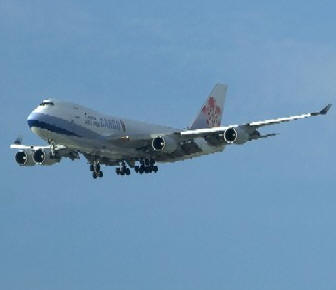|
|||||||||||||||||
|
|
|
|||
|
Air Transport
Association Calls EU Greenhouse Gas Emissions Bill Illegal By Shane Nolan |
||||
 |
June 11, 2011 - The Air Transport Association of America
(ATA), the industry trade organization for the leading
U.S. airlines, on Tuesday in the European Court of
Justice (ECJ), called for the European Union application
of an Emissions Trading Scheme (ETS) to be dismissed and
declared illegal.
The ATA, which brought the action on behalf of all of
its members, said in its argument that aviation
greenhouse gas (GHG) emissions should be regulated on a
global sectoral basis and that unilateral action by any
country or group of countries violates international
law.
As
stated in ATA?s testimony before the ECJ, ?If the EU ETS
regime implemented an international agreement agreed by
third countries, as well as by the EU, we would not be
here today. ATA challenges EU ETS because it is a
unilateral measure, which has not been agreed by
countries outside the EU, yet nevertheless applies EU
law to third country carriers in third country
airspace.? |
|||
|
ATA
believes that in applying the trading scheme to non-EU airlines,
the EU is violating customary international law and several
treaty provisions in the Convention on International Civil
Aviation (commonly referred to as the ?Chicago Convention?),
which dictates that countries have sovereignty over the airlines
in their own airspace. As proposed, the EU ETS provisions would
regulate an entire flight from across the United States to the
EU, even though the flight would be in EU airspace for only a
tiny fraction of the journey.
ATA
provided a vivid example of this in its testimony before the
ECJ, describing the application of the EU ETS to a flight by one
of its members, leaving from San Francisco and landing at London
Heathrow. From before the aircraft begins to taxi from the gate
in San Francisco, the EU emissions rules apply:
As a
percentage of total emissions, 29% take place in US airspace,
including those on the ground at the airport. A further 37% take
place in Canadian airspace, and a further 25% over the high
seas. Only 9% of emissions take place in EU airspace.
Yet the ETS will impose a levy on this carrier, and may
also impose an excess emissions penalty, based on emissions for
the entire flight from start to finish. In its case against application of the EU ETS to its airlines, ATA also outlined how the levies imposed by the scheme violate provisions of the Chicago Convention and U.S.-EU bilateral air services agreement and the Kyoto Protocol, which confirms that International Civil Aviation Organization (ICAO) has the authority to establish greenhouse gas policy for international aviation. |
||||

